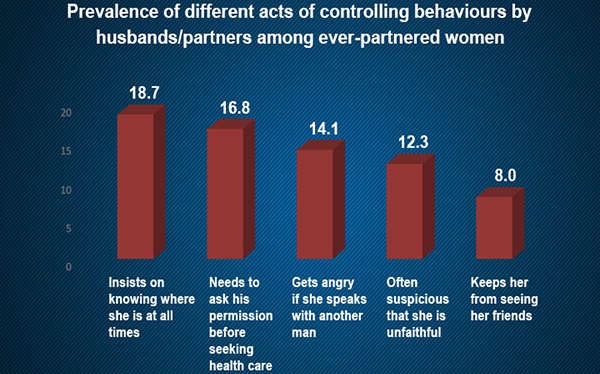 Controlling behaviour is the most common form of violence against women and girls in the country according to a recent study on violence against women and girls (VAWG). The study states that 35.3 per cent of women in the country have experienced this form of violence in their lifetime.
Controlling behaviour is the most common form of violence against women and girls in the country according to a recent study on violence against women and girls (VAWG). The study states that 35.3 per cent of women in the country have experienced this form of violence in their lifetime.
Controlling behaviour is an ongoing pattern of domination by depriving one’s partner of the means needed for independence, resistance and escape and regulating their everyday behaviour.
Controlling behaviours include such as partner restricting her from seeing her family or friends, insisting on knowing where she was at all times, getting angry if she speaks to another man, suspected if she was unfaithful, and expecting her to ask his permission before seeking health care for herself.
Among all these controlling behaviours, the highest number of 18.7 per cent of Bhutanese women experience her partner insisting on knowing where she was at all times.
As per the report, controlling behaviours can lead to other forms of violence and can also be seen as a risk factor for physical, sexual and emotional violence among others.
The prevalence was slightly higher in rural areas than in urban areas.
The report, which is the first comprehensive national survey, was launched on March 8, coinciding with International women’s day.
The survey was initiated in 2017 by the National Commission for Women and Children (NCWC) with support from the Austrian Development Cooperation (ADC) and the United Nations Development Programme (UNDP) Bhutan.
The two-year study surveyed more than 2,000 women and girls across the country.
Based on the findings, the commission plans to unveil the issues of violence, examine its causes and factors, and provide recommendations for them to recognise the issue and eliminate violence against women and girls.






